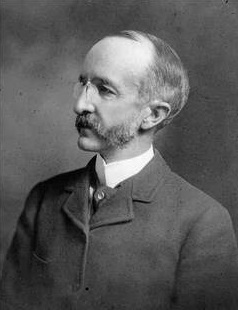At the front of the Mayo Clinic, there is a stained-glass inscription that famously reads:
“To cure sometimes, to relieve often, to comfort always.”
It comes from the 19th century humanitarian Edward Livingston Trudeau, who founded the tuberculosis sanitarium of Saranac Lake in the Adirondack Mountains.
Before antibiotics came around, he was a firm believer in diet, fresh air, and exercise as a form of treatment, and is widely-admired to this day.
In fact, if you’re in the health care field, you’ll find that numerous institutions, nurses, and doctors have adopted the phrase as a guiding philosophy (read a touching tribute by Dr. Mark David Seigel of Yale Medical School here).
Beyond “do no harm,” it’s probably the most ubiquitous phrase you’ll come by in health care.
And what a quote it is.
The beauty of it is that you and I can also live by that quote in our journey with the disease, because we are both wounded and, as Henri Nouwen writes, “wounded healers.”
You and I aren’t professionals. We can’t cure someone of their mental illness. But perhaps we can point them to someone who can help.
And you and I can “relieve often.”
Not always, because we know that mental health disorders are famously tricky, but we can listen — I can’t tell you what just listening to someone does for them.
And we can always, always comfort.
Sometimes the comfort won’t be words, in fact, usually it won’t. It might be the kindness of using a bit of the surplus of our energy for someone who has none.
Every Christian, in every context, in every interaction, can offer comfort in some way.
And there’s something more for you and me.
The emotionally wounded can offer comfort in ways the “strong” can’t.
As the playwright Thornton Wilder wrote, “in love’s service, only wounded soldiers can serve.”
I’m not thankful for depression, anxiety, and OCD. I wish I were sage and old and wise enough to say that I’m thankful for it.
But I hate diseases that are part of the fall. And I hate the way depression, anxiety and OCD often rob myself and family of living a fuller life. It’s not somehow more spiritual to say we love consequences of the fall, to say that we love brokenness.
Who prays for suffering? Jesus begged the Father to take away the cup of suffering.
But I am thankful that I know how someone feels when they talk about how exhausting, paralyzing, and exhausting and paralyzing and exhausting and paralyzing and exhausting and paralyzing OCD is.
Or, as Andie McDowell recently put it, how PTSD “is in your bones.”
We form connections with people who need connections, and God knows we need them, as well. And if all Christians were Hallmark Christians, I doubt we’d do much good.
If we didn’t struggle, we wouldn’t just be oblivious to suffering; no, even worse, our human arrogance would lead us to look down on it.
As I type, it’s a hard morning and I want to be comforted. Maybe you do too.
But someone else needs us, as well. And by looking for that someone else, maybe we’ll find comfort as well. (Or truthfully, maybe not. In fact, probably not, let’s be realistic. But at least we’ll have done someone some good).
So today and every day: “To cure sometimes, to relieve often, to comfort always.”

